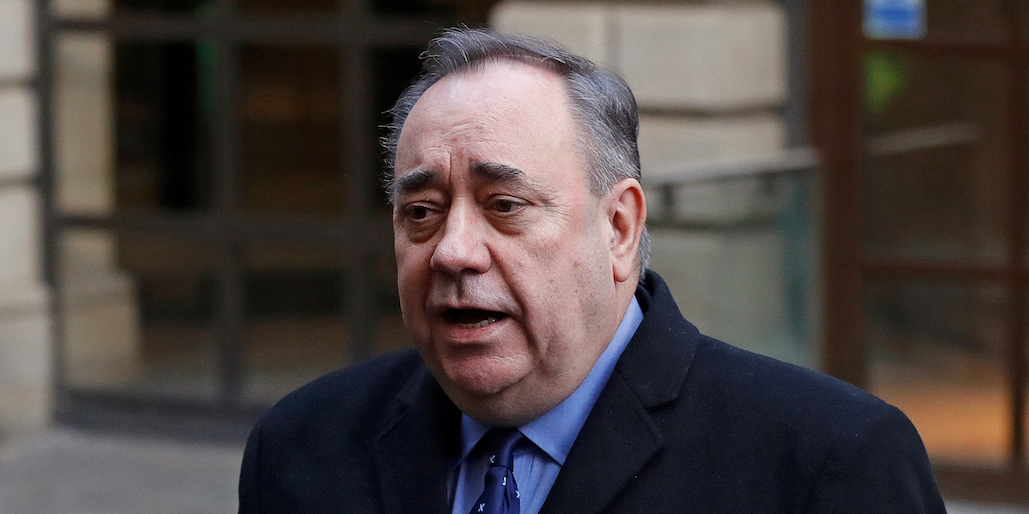- Alex Salmond has been charged with nine counts of sexual assault and two counts of attempted rape.
- The former first minister of Scotland was also charged with two counts of indecent assault and one count of breach of the peace.
- He the Scottish leader from 2007 to 2014, and resigned after failing to persuade Scotland to vote for independence in a nationwide referendum.
- Salmond said outside Edinburgh Sheriff Court on Thursday that he was “innocent of any criminality” and said he would fight the charges in court.
- Salmond was under investigation by Police Scotland over allegations of sexual harassment, which he denied.
Alex Salmond, the former first minister of Scotland, has been charged with multiple counts of sexual assault and two counts of attempted rape.
Salmond faces 14 charges in total, including two counts of indecent assault and one count of breach of the peace, the BBC reported. Salmond was the leader of the Scottish National Party for more than 20 years. Perhaps more than any other figure, he was the protagonist who won the right to hold a referendum on Scottish independence in 2014, and he pulled Scotland to the brink of going it alone. (The Scots ultimately voted to stay within the United Kingdom.)
Salmond appeared in a closed session of Edinburgh Sheriff Court on Thursday afternoon. He said outside the court that he was “innocent of any criminality” and that he would “defend himself to the utmost in court,” Scotland’s Daily Record newspaper reported.
Salmond said that he was unable to comment further outside of the courtroom. He made no plea during the hearing and was released on bail, according to the BBC.
Police Scotland had been investigating Salmond, who resigned as first minister in 2014, over allegations of sexual harassment, which he denied.
He was accused in August of sexual misconduct with two female staff members while in office. He then called the allegations "patently ridiculous."
He also won a legal challenge against the Scottish government in January in which the government admitted that procedural errors in its internal investigation of him as a government officer meant it had acted unlawfully against him.

